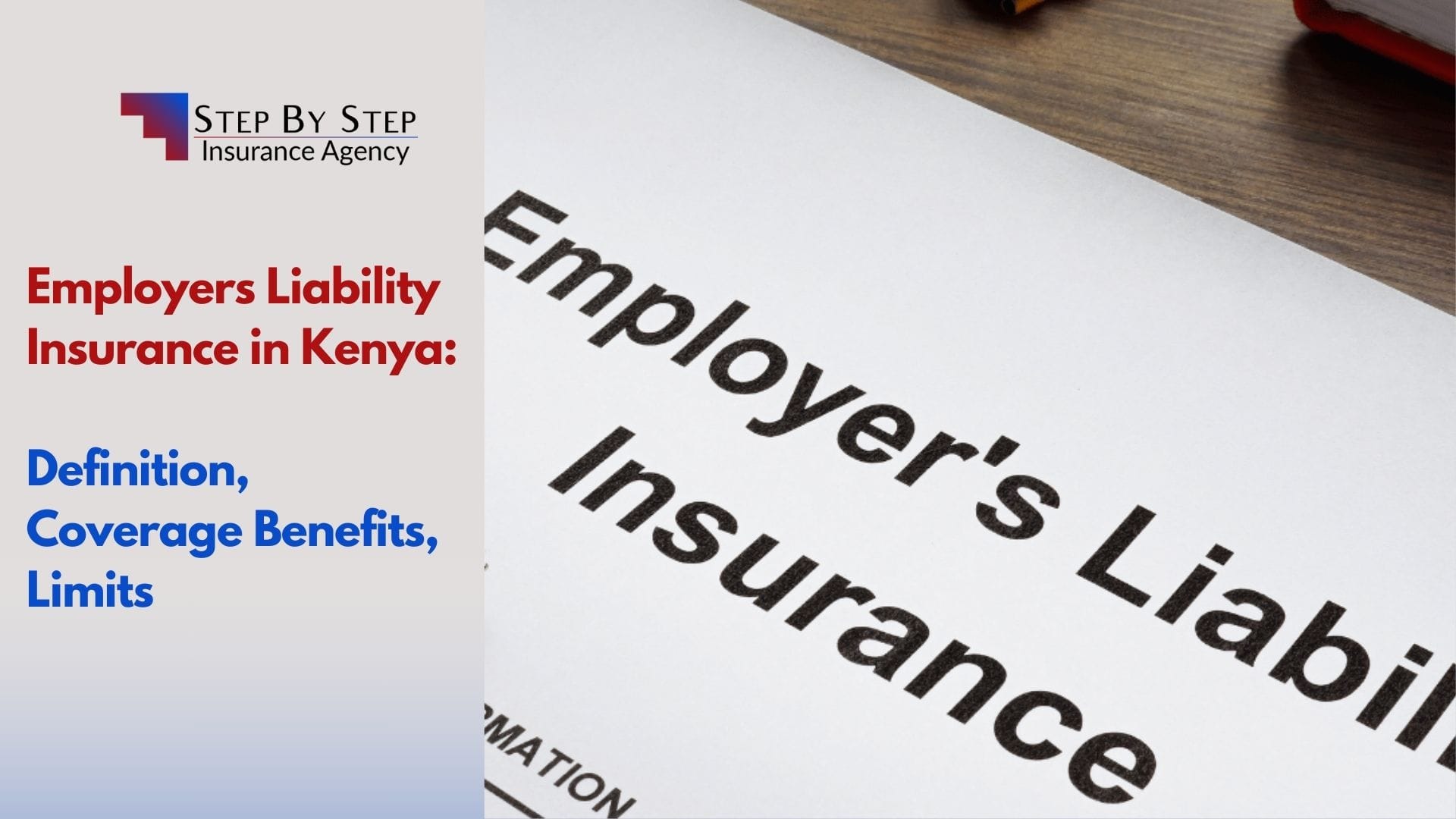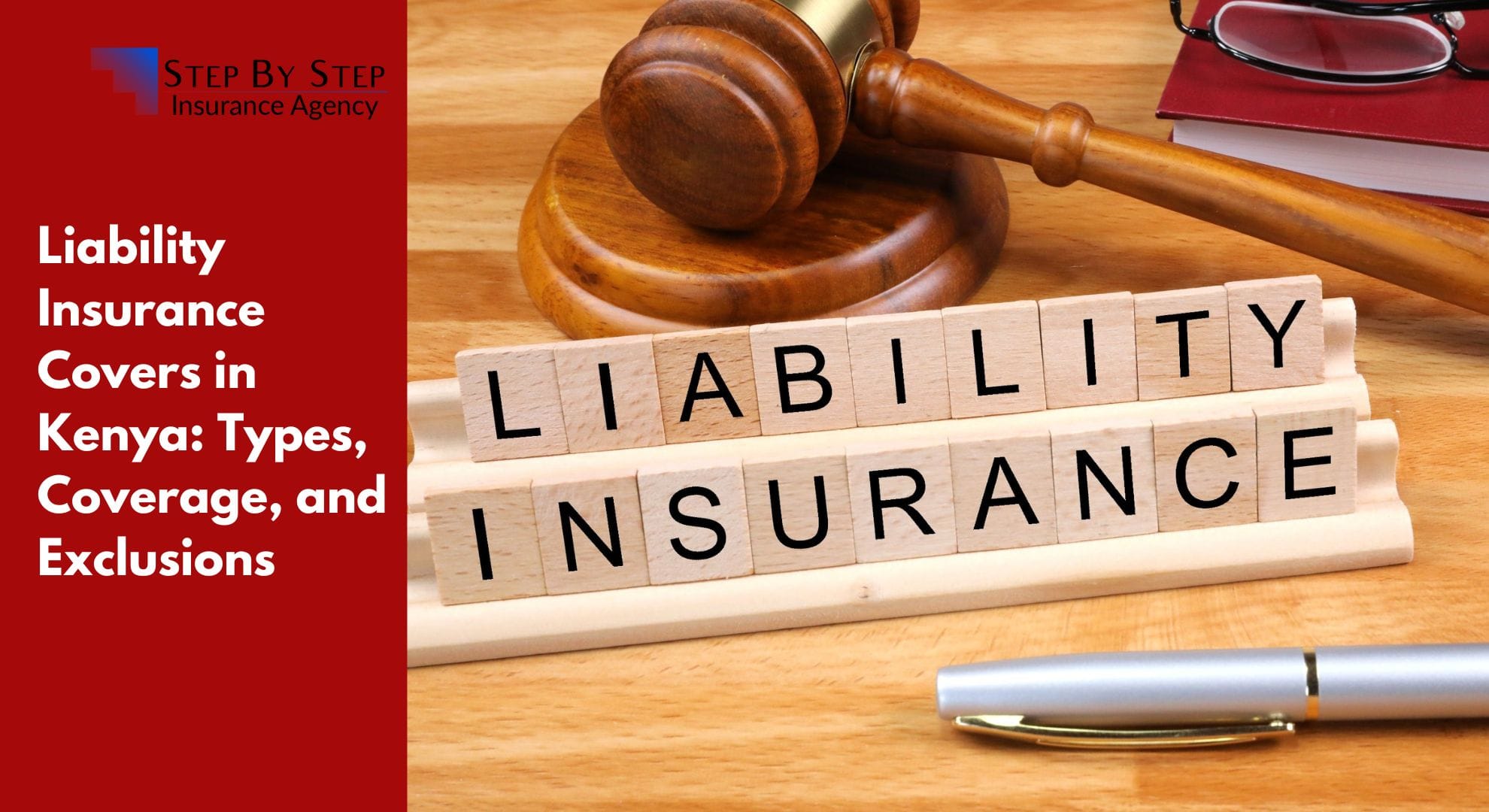Employers Liability Insurance in Kenya: Definition, Coverage Benefits, Limits
Employers Liability Insurance (ELI) is a critical form of protection for businesses, designed to shield employers from the financial and legal burdens that can arise when employees suffer workplace injuries or illnesses due to negligence. In the Kenyan business environment, where labor laws are increasingly emphasizing employee safety and welfare, ELI has become an essential part of risk management for companies across various industries.
This type of insurance goes beyond the basic requirements of workplace safety, offering a safety net for employers against claims that may not fall under statutory protections. While often confused with Workers Compensation Insurance, ELI serves a distinct but complementary purpose.
Workers Compensation Insurance provides benefits to employees for injuries or illnesses arising from their job, often as required by the Workers Compensation Act. However, ELI steps in to address areas not covered under the Act, including claims involving negligence, unsafe working conditions, or failure to provide adequate safety measures.
Definition: What is Employers Liability Insurance
Employers Liability Insurance is a policy that provides financial protection to employers for claims made by employees who suffer work-related injuries or illnesses and allege that the employer’s negligence contributed to their harm.
Coverage Benefits
Employers Liability Insurance plays a vital role in safeguarding businesses from the financial strain and legal challenges that can arise from workplace injuries or illnesses. In the Kenyan context, where labor laws and employee protection regulations are becoming increasingly stringent, this type of insurance is not just a precaution but a necessity. It provides an essential layer of security by covering costs associated with claims made by employees who experience harm due to the employer’s negligence or unsafe working conditions.
For many businesses, especially those operating in high-risk industries such as construction, manufacturing, or logistics, Employers Liability Insurance is a cornerstone of risk management. It ensures that employers are financially prepared to handle unforeseen incidents, from medical expenses to compensation for lost wages or rehabilitation costs. Beyond the immediate financial relief, the insurance also covers legal fees and potential settlements in cases where employees take legal action against their employer.
1. Legal Costs:
Covers legal fees incurred by the employer in defending against a lawsuit.
2. Compensation Payouts:
Provides compensation for damages awarded to employees by courts.
3. Injury or Illness Costs:
Covers claims for occupational injuries or illnesses arising from unsafe workplace practices.
4. Third-Party Claims:
Extends to claims filed by third parties (e.g., family members) affected by the employee’s injury or illness.
5. Rehabilitation Costs:
May cover expenses related to the injured employee’s recovery or reintegration into the workplace.
Exclusions
While Employers’ Liability Insurance provides invaluable protection for businesses against claims related to workplace injuries or illnesses, it’s important to recognize that this coverage has its limits. Not all scenarios or claims fall within the scope of an ELI policy, and understanding these exclusions is crucial for avoiding misunderstandings during the claims process.
Here’s a detailed look at some of the most common exclusions typically found in Employers’ Liability Insurance policies:
1. Intentional Acts
- What’s excluded: Claims arising from intentional harm or injury caused by the employer to an employee.
- Why it’s excluded: Insurance policies are designed to cover unforeseen incidents or accidents, not deliberate actions. Employers are expected to uphold ethical workplace practices.
2. Gross Negligence
- What’s excluded: Claims resulting from the employer’s blatant disregard for workplace safety regulations, such as knowingly using faulty equipment or ignoring hazardous conditions.
- Why it’s excluded: Insurers expect employers to take reasonable steps to maintain a safe working environment; gross negligence violates this principle.
3. Contractual Liability
- What’s excluded: Liabilities assumed under a specific contract that extend beyond what the law requires, such as additional compensation promised in employment contracts.
- Why it’s excluded: These obligations are seen as voluntary agreements made by the employer and not the responsibility of the insurer.
4. Injuries Covered by Workers Compensation
- What’s excluded: Claims that fall under statutory Workers Compensation Insurance. For example, if the Workers Compensation Act covers the medical expenses for an employee’s injury, the ELI policy will not duplicate this coverage.
- Why it’s excluded: Employers’ Liability Insurance is meant to complement, not overlap with, Workers Compensation Insurance.
5. Non-Employee Claims
- What’s excluded: Injuries or illnesses sustained by non-employees, such as independent contractors, visitors, or customers on the premises.
- Why it’s excluded: ELI policies are specifically designed to cover claims made by employees, while other types of liability insurance, like Public Liability Insurance, cover third parties.
6. Occupational Illnesses Outside Policy Scope
- What’s excluded: Certain long-term occupational illnesses or diseases that are not explicitly listed in the policy.
- Why it’s excluded: Policies may have limitations on the types of illnesses they cover, particularly those requiring substantial evidence of workplace causation.
7. Fines and Penalties
- What’s excluded: Government-imposed fines or penalties related to workplace violations, such as non-compliance with labor laws or safety regulations.
- Why it’s excluded: Insurance policies do not cover punitive measures, as they are intended to encourage employers to meet their legal obligations.
8. War, Terrorism, and Natural Disasters
- What’s excluded: Claims resulting from war, acts of terrorism, or catastrophic natural events like earthquakes or floods.
- Why it’s excluded: These are considered extraordinary risks that require separate specialized insurance coverage.
9. Mental Health Claims Without Physical Injury
- What’s excluded: Claims for stress, anxiety, or other mental health conditions not accompanied by a physical injury or directly linked to a workplace incident.
- Why it’s excluded: Mental health claims often require additional evidence and may fall outside the scope of standard ELI policies.
10. Claims Filed After Policy Expiry
- What’s excluded: Claims made for incidents that occurred outside the policy period or after the insurance has lapsed.
- Why it’s excluded: Policies are time-bound, and incidents must occur during the active coverage period to be eligible for claims.
How Employers Liability Insurance Works
Employers’ Liability Insurance (ELI) operates as a safety net for businesses, offering financial protection when employees file claims for workplace-related injuries or illnesses caused by the employer’s negligence. This type of insurance is particularly critical in Kenya, where labor laws require employers to maintain safe working conditions for their staff.
Coverage Limits
Employers Liability Insurance plays a vital role in safeguarding businesses from the financial strain and legal challenges that can arise from workplace injuries or illnesses. In the Kenyan context, where labor laws and employee protection regulations are becoming increasingly stringent, this type of insurance is not just a precaution but a necessity. It provides an essential layer of security by covering costs associated with claims made by employees who experience harm due to the employer’s negligence or unsafe working conditions.
The policy includes limits set for:
- Per Accident: Maximum amount payable for a single incident.
- Per Employee: Maximum amount payable to an individual employee for a claim.
- Aggregate Limit: Total payout cap for all claims within the policy period.
The exact limits depend on the insurer and the specific terms of the policy. In Kenya, many insurers offer flexible limits to suit the needs of businesses of varying sizes and risk profiles.
Key Benefits for Employers in Kenya
Employers Liability Insurance is a crucial safeguard for businesses operating in Kenya, providing protection against financial and legal liabilities stemming from workplace injuries or illnesses. In a rapidly evolving business landscape where employee welfare and workplace safety are paramount, having this insurance not only ensures compliance with legal obligations but also promotes a positive work environment. By mitigating the risks associated with potential lawsuits, this policy helps businesses focus on their growth while demonstrating a commitment to the well-being of their employees.
- Financial Protection: Safeguards businesses from financial strain due to employee lawsuits.
- Legal Compliance: Demonstrates due diligence in maintaining workplace safety.
- Employee Confidence: Enhances trust and goodwill among employees by showing commitment to their welfare.
Premiums for Employers Liability Insurance in Kenya
The premium rates for Employers Liability Insurance in Kenya are not standardized and can vary significantly based on several factors, including:
1. Nature of Business:
Industries with higher risk profiles, such as construction or manufacturing, may attract higher premiums compared to lower-risk sectors like administrative services.
2. Number of Employees:
A larger workforce increases potential liability, influencing the premium cost.
3. Coverage Limits:
Higher coverage limits generally result in higher premiums.
4. Claims History:
Businesses with a history of frequent or severe claims may face increased premiums.
5. Safety Measures:
Companies with robust workplace safety programs and lower incident rates might benefit from reduced premiums.
Given these variables, insurers typically assess each business individually to determine the appropriate premium. It’s advisable to consult directly with insurance providers or brokers to obtain tailored quotes that reflect your specific circumstances.
How to Choose the Best Employers Liability Insurance
Selecting the right Employers Liability Insurance (ELI) is a critical decision for businesses, especially in Kenya’s evolving workplace and regulatory environment. The right policy can provide financial protection, ensure compliance with labor laws, and foster a safe and supportive work environment for employees. However, with numerous insurers offering varied packages, it’s essential to carefully evaluate your options to find the best fit for your business needs.
1. Coverage Limits:
Ensure the policy limits align with your potential exposure based on your industry and workforce size.
2. Policy Exclusions:
Understand any exclusions to ensure critical risks are covered.
3. Additional Benefits:
Some policies may offer added services such as legal support or risk management resources.
4. Premium Costs:
Balance the cost of premiums with the level of coverage provided to ensure value for money.
5. Choose a Reputable Insurer
The reliability of the insurer plays a significant role in your experience, from policy purchase to claim processing.
It’s recommended to engage with insurance professionals or brokers who can provide personalized advice and help you navigate the options to find a policy that best suits your business needs.
Conclusion
Employers’ Liability Insurance is an essential component of any comprehensive business risk management strategy in Kenya. It goes beyond basic statutory requirements, providing employers with robust financial protection against claims arising from workplace injuries or illnesses caused by negligence. By understanding the definition, coverage benefits, and policy limits, employers can make informed decisions that safeguard both their employees and their business.
This insurance not only mitigates the financial strain associated with legal fees, compensation, and medical expenses but also fosters trust and confidence among employees by showcasing a commitment to their safety and well-being. In an increasingly regulated environment, having Employers Liability Insurance is a proactive step toward compliance, financial security, and long-term business success.
As you navigate the options available in the Kenyan market, remember to assess your business’s unique needs, evaluate coverage limits, and choose a reputable insurer. Investing in the right policy today will protect your workforce, strengthen your reputation, and ensure peace of mind for years to come. Don’t wait for a claim to disrupt your operations—act now to secure your business and employees with the protection they deserve.
Ready to take the next step? Contact Step By Step Insurance Agency today for expert guidance and tailored Employers Liability Insurance solutions!
Contact Step By Step Insurance Agency
Call: 0729712200 / 0716534192
WhatsApp: 0722888350
Email: info@stepbystepinsurance.co.ke
Website: stepbystepinsurance.co.ke/
#InsuranceMatters #ELIinKenya #WorkplaceSafety #StepByStepInsurance #BusinessProtectionKenya





